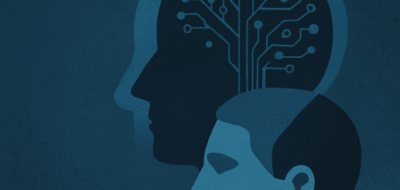The world has come to a point where life without the pervasive presence of technological gadgets is very hard to imagine. And yet, this technology-filled world is not immune to crises. Which of them scare us the most?
The non-technological world is virtually disappearing – it is becoming unknown and inaccessible. Any information one cannot look up on a web-enabled smartphone is considered to be either non-existent or of no consequence for the world. At least to my world.
Are there limits to this technological universe, which we’ve grown to take for granted? Are there serious warnings looming on the horizon that people are choosing to ignore? Here are a few threats affecting nearly the entire world of technology. The risks they pose affect corporations and individuals alike.
My article for Data Driven Investor – link to the article.
The dream of 40 hackers
The most obvious as well as the trivial problem is cybersecurity. The very technology that has given us the amazing freedom to communicate and has greatly enhanced our cognitive abilities, is actually very fragile and vulnerable to mass attacks. While the pre-technological-age world could be brought down by natural disasters, wars and famine, ours can be annihilated by a mere 40 people, which is actually the number of names on the FBI list of the world’s most wanted hackers who were active last year.
Every year, software updates, legions of IT staff tasked with detecting system vulnerabilities, security systems, and breach prevention cost enterprises a fortune. Last year, the average cost of data breaches incurred by companies around the world was US$ 3.8 million. In 2019, the cybersecurity budget of the United States alone will reach the US$ 25 billion mark. Multiply that by a few dozen to arrive at the mind-boggling amount that the world is spending to protect its fragile technology.
As cybersecurity spending grows, one of the most effective hacking methods – phishing – is becoming cheaper and easier to use. Regrettably, the immediate future offers little to dispel our fears. As the internet becomes more ubiquitous, the world is turning into a more complex patchwork of technological devices that lure cybercriminals. One of the biggest challenges faced by today’s technology industry is how to sustain growth and then survive the growth we have generated.
The dream of a popular rebellion
The above challenge is tied indirectly to yet another, which is how to protect personal data from unauthorized use and breaches. Today’s personal technology industry is associated closely with global social networks, which are no longer mere communications platforms. You can now buy and sell things on Facebook and the same may soon be possible on Instagram. According to many observers, the Cambridge Analytica scandal has slowed down Facebook’s march to acquire new users. Unless the tech industry invents a safe way to handle personal data, businesses may be brought to the edge of a cliff. If the average user says “enough is enough”, many global projects relying on the community mechanism may collapse.
The dream of the black box
I have repeatedly written about the benefits of artificial intelligence and debunked the doom-and-gloom scenarios prophesied for that field. Many of these myths are based on entirely irrational fears. I am nevertheless not one to quickly dismiss the tech industry’s misgivings. Having left specialized laboratories, machine learning algorithms are migrating to our companies, banks, cars and online stores. Top programmers make no secret about the fact that our world is increasingly unpredictable and even unexplainable.
Algorithms create their own rules and languages, leaving even experts scratching their heads to explain the effects of their actions. That AI is a black box – which symbolizes a device whose inner workings escape comprehension – is no longer a mere myth. It is a fact of life. How does one keep it from becoming a Pandora’s box? Artificial intelligence has the potential to improve the world, enhance people’s cognitive abilities, and perhaps transport the human mind and consciousness into a whole new dimension. But won’t it become harder to understand and control as it goes along?
The dream of empty desks
As noted repeatedly in my blog, the widespread highly-publicized fear that robots will take over people’s jobs is highly exaggerated. Such scenarios are a sign of myopic vision and a failure to understand that new technologies, artificial intelligence included, will create many new jobs by generating demand for skilled labor to handle robot training, bots, etc. However, the industry is facing a completely different problem and this one is very real. Its challenge is to keep up with the rapidly changing environment and the demands of the modern workplace. Will companies be able to recruit new skilled professionals capable of meeting the challenges of the digital world quickly enough? A shortage of talented personnel to address information processing and data security challenges may stand in the way of even the most visionary corporate projects. A shortage of experts trained in new threat detection may seriously compromise global cybersecurity. In addition, there is a growing problem with satisfying the needs of today’s consumers. According to Adobe, one in four major high-tech companies (employing at least 500 employees) claims to be unable to meet the growing expectations of its customers. A growing number of companies in the trade and internet service sectors face such problems. All in all, technology has created an enormous demand for new skills and professionals. This demand is, in fact, likely to continue rising.
The above are merely four dreams. There must be many more playing out in the heads of the leaders of the world’s top tech companies. Technology has always been known to breed anxiety – it has done so since the first cars hit the streets and the first planes took to the skies. I think that having to deal with such fears is a natural price for progress. And that is the one constant we can certainly count on in our world.
My article for Data Driven Investor – link to the article.
Related articles
– Automation will not destroy all jobs
– Blockchain poised to shake up our lives
– Will quantum computers doom the blockchain?
– Artificial Intelligence for big players only












John Macolm
There’s a lot of talks about how we should first develop a safe space for the baby AI to grow in to know what’s right and wrong before we actually develop the AI itself. So far, it doesn’t seem like that’s happening. Elon Musk, Bill Gates, and Stephen Hawking are a few who voice this opinion. Hawking even said
” So, facing possible futures of incalculable benefits and risks, the experts are surely doing everything possible to ensure the best outcome, right? Wrong. If a superior alien civilisation sent us a message saying, ‘We’ll arrive in a few decades,’ would we just reply, ‘OK, call us when you get here–we’ll leave the lights on?’ Probably not–but this is more or less what is happening with AI ”
So why is there still a general lack of concern over this from the field?
Dzikus99
AI helps us in reducing the errors and the chance of reaching accuracy with a greater degree of precision. It is applied in various studies such as exploration of space.
Intelligent robots are fed with data and are sent to explore space. Since they are more resistant and have a greater ability to endure the space and hostile atmosphere due to their metal bodies. They are built and acclimatized in such a way that they cannot be altered or get damaged or malfunction in a hostile environment.
PiotrPawlow
Machines don’t possess “behavior” Norbert – behavior is a purely human activity and trait — as is “accomplishment”.
You’re article is creepy — time to get out of the dark room and interact with the humans you seem to so insistent to discount and diminish.
NorTom2
In the expanding world of the Internet of Things, entrepreneurs would be better off to remember two old adages: Resistance is futile, and if you can’t beat them join them. No matter its predicted benefit, the notion of change is hard to accept because people are settled into comfort zones and face resistance based on the status quo. Profiting from your information might be the best selling point. After all, everyone else will benefit from your data. Why not you?
TomCat
The issue here is that banks and financial institutions actually are amazingly trustworthy with all of the issues that bitcoin claims to solve. If I send 50 million via Wells Fargo I am guaranteed to have it show up at its destination with the same amount of trust as I would via bitcoin.
The difference is that if I get scammed over bitcoin then I’m out the bitcoin, meanwhile if I get scammed via a chase bank transfer then I can get a court order to have those funds reverted back to my account.
Acula
In the expanding world of the Internet of Things, entrepreneurs would be better off to remember two old adages: Resistance is futile, and if you can’t beat them join them. No matter its predicted benefit, the notion of change is hard to accept because people are settled into comfort zones and face resistance based on the status quo. Profiting from your information might be the best selling point. After all, everyone else will benefit from your data. Why not you?
AdaZombie
There are already mind-controlled game interfaces, and medical devices to move paralyzed limbs.
Now, to have an “Alexa” in the middle of a mind-controlled communication device is unnecessary and worthless.
Jack666
In my opinion the AI is a controversial topic because the same good things about it could become in dangerous consequences if the human don’t take control. An example could be the feelings and emotions; A robot take the correct desicions and it doesn’t care how the others could feel or think, It only has a logical thought. That could be a good thing if we see it since a point of view to take a fair desicion, but on the bad side the emotions are necessary for everything and for that reason we cannot depend absolutely on machines or technology. we shouldn’t add them totally to our types of life althought they help us to improve a part of our current activities.
Also is important notice that many cultures wouldn’t be prepared to live with AI mainly by their government, the most of leaders can perform bad their power use and the mainly affected would be the community and in the wrong hands this could be a disaster.
As a conclusion for me the AI is a very useful “tool” and I won’t deny that each time is easier make things that before we thought impossible. But I think is dangerous search for the “perfection” in this.
Maybe the day when machines do everything for us will come and we will become in useless beings.
Dzikus99
Repetitive tasks are monotonous in nature can be carried out with the help of machine intelligence. Machines think faster than humans and can be put to multi-tasking. Machine intelligence can be employed to carry out dangerous tasks. Their parameters, unlike humans, can be adjusted. Their speed and time are calculation based parameters only.
When humans play a computer game or run a computer-controlled robot, we are actually interacting with artificial intelligence. In the game we are playing, the computer is our opponent. The machine intelligence plans the game movement in response to our movements. We can consider gaming to be the most common use of the benefits of artificial intelligence.
John Macolm
Let’s build a detailed picture of the future together. Forecasting AI Progress is the largest-ever tournament dedicated to predicting advances in AI, and you’re invited to compete. Become a smarter, farther-seeing person while contributing to AI research and winning cash prizes.
John McLean
Quantum computers will help greatly with security, in medicine ,weather forecast, traffic control. It sure will solve complex data problems.I am not surprised many computer giants are investing into its research. Thanks for sharing
Tom299
Excellent article, thanks for posting
Tom Jonezz
Nice read Norbert
Tom Jonezz
Because the notion of the algorithm in construct is to alleviate the burden upon AI to expedite ‘more’ or somehow ‘better’ justice upon the people(s), whatever the concern in question to be judged, the total second variable value is not an ‘absolute value’ because people are always hurting out of hurt and criminalized by crimes so the second variable is essentially negative.
Norbert Biedrzycki
Simon GEE
On the other hand I also think that each day technology is getting out of control from humans, and we really don’t know how to deal with it, we are giving to technology a big part of our time for example with social networks, most people live on behalf of networks and don’t live a real life, most people are slaves to buy devices that they don’t even need, and the worst thing, relationships face to face are finishing up; as humans we have the capability to think, to improvize and complement each others, luckily thats a skill that computers dont have yet.
TomCat
Maybe the article didn’t go out and say it, but the point is pretty blunt: blockchain offers easy fix to complex problems but it accomplishes nothing, similar to “get rich quick” schemes or fad diets. As long as humans are inputting data, they can manipulate however they want and blockchain only gives people false sense of security they shouldn’t have. We already seen that though numerous exchanges getting “hacked” or ICOs taking money and dropping from the face of the earth, the fact that transactions were on public ledger accomplished nothing.
There is no easy solutions to this other than building trust, independent institutions, demanding better regulations and consumer rights. Its not as sexy as blockchain but it actually works. Once the craze ends, I think there will be applications but they will be extremely niche.
Zidan78
Why four only? Go more broader. There is lot’s of good tech left behind
AdaZombie
Google is slowly trying to solve the problem using helium balloons to beam the internet to inaccessible areas, while Facebook has abandoned plans to do the same using drones, which means companies like Hiber are stealing a march. They have taken a different approach by launching their own network of shoebox-sized microsatellites into low Earth orbit, which wake up a modem plugged into your computer or device when it flies over and delivers your data.
Their satellites orbit the Earth 16 times a day and are already being used by organisations like The British Antarctic Survey to provide internet access to very extreme of our planet.
https://www.sciencefocus.com/future-technology/future-technology-22-ideas-about-to-change-our-world/
TomaszK1
Good content – reach out to this link
AndrewJo
There’s no way to stop the development, just because it may benefit tech; and I believe to set a ‘standard’ is naive thinking – will North Korea, Iran submit to the same standard. Will US and China no try to gain advantage one over another in this ‘standards’?
As with the nuclear powers – the industrial military power will be about a balance between the most powerful nations, and whether the most deadly weapons are deployed – relies on whether that balance is kept.
tom lee
I would potentially add IoT, VR/AR
Mac McFisher
Good read. Thank you for sharing
Jack666
Nice. Apparently auto-correct doesn’t recognize pupper as a word, and assumed I meant puppet. I did not.
Dzikus99
Artificial intelligence and the science of robotics can be put to use in mining and other fuel exploration processes. Not only that, these complex machines can be used for exploring the ocean floor and hence overcome the human limitations.
Due to the programming of the robots, they can perform more laborious and hard work with greater responsibility. Moreover, they do not wear out easily.
Simon GEE
Nice dreams